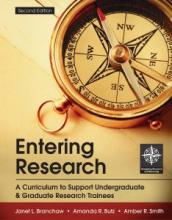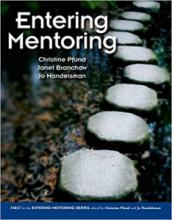Resource Library
Last updated: May 2, 2025
IGEN and our partners are developing and collecting resources to support individuals and institutions that are interested in graduate education.
- Presentation Materials
The Inclusive Graduate Network March Meeting 2022 Session Y28
Details
The Inclusive Graduate Education Network (IGEN) is an NSF INCLUDES Alliance that seeks to advance equity in graduate education across the physical sciences. The IGEN Alliance is led by the APS, other professional societies in the physical sciences, and social scientists who provide critical expertise needed to build toward systemic change in graduate education. IGEN goals are to (1) increase the fraction of students from underrepresented groups who complete doctoral degrees in the physical sciences to match fraction at the bachelor's degree level, (2) catalyze the adoption of evidence-based inclusive practices toward a more equitable graduate education enterprise, (3) conduct relevant research and propagate results, and (4) establish sustained, cross-sector partnerships that support the advancement of underrepresented students from undergraduate studies through professional employment. In the first three years of the project, the American Chemical Society and the American Geophysical Union successfully launched Bridge Programs modeled on the APS Bridge Program, and collectively these three programs placed over 200 students on a path toward earning a doctoral degree. Over 65 workshops attended by more than 1700 participants have promoted inclusive practices for graduate education and postdoctoral mentoring. Relevant social science research results have been disseminated and translated for the benefit of practitioners. A broad and growing network of Alliance partners has been established, including 5 disciplinary societies, 4 minority serving organizations, 100 graduate programs, 15 national laboratories, and 5 corporate sponsors.
- Article
New View of Expanding Perspectives in the Geosciences
Details
"Earth and environmental sciences have some of the least diverse racial and ethnic representation in academia. To face profound future challenges, the fields need to address the inequities of the past and how they inform the present."
- Article
Ten simple rules for building an antiracist lab
Details
Abstract: Demographics of the science, technology, engineering, and mathematics (STEM) workforce and student body in the US and Europe continue to show severe underrepresentation of Black, Indigenous, and people of color (BIPOC). Among the documented causes of the persistent lack of diversity in STEM are bias, discrimination, and harassment of members of underrepresented minority groups (URMs). These issues persist due to continued marginalization, power imbalances, and lack of adequate policies against misconduct in academic and other scientific institutions. All scientists can play important roles in reversing this trend by shifting the culture of academic workplaces to intentionally implement equitable and inclusive policies, set norms for acceptable workplace conduct, and provide opportunities for mentorship and networking. As scientists are increasingly acknowledging the lack of racial and ethnic diversity in science, there is a need for clear direction on how to take antiracist action. Here we present 10 rules to help labs develop antiracists policies and action in an effort to promote racial and ethnic diversity, equity, and inclusion in science.
Five reasons graduate programs reject stellar applicants
- Journal Article
Departmental support structures for physics graduate students: Development and psychometric evaluation of a self-report instrument
Details
Abstract: High attrition rates in science, technology, engineering, and mathematics disciplines are an ongoing problem. Graduate student attrition, in particular, is understudied. Most past studies have focused on students’ attributes, undergraduate preparation, and mentoring relationships. Emerging results from the implementation of the American Physical Society Bridge Program (APSBP) suggest that departmental support structures could lead to increased retention. However, there are no validated instruments to measure students’ experience of the departmental support structures. This paper describes the development and psychometric evaluation of the aspects of student experience scale (ASES). Items were developed based on prior literature and the APSBP recommendations, revised based on APSBP feedback, and subjected to psychometric evaluation. Principal components analysis of data from 397 students at 19 physics graduate programs (2 M.S. and 17 Ph.D.) across the U.S. resulted in four distinct factors: (a) mentoring and research experience, (b) professional development, (c) social and academic integration, and (d) financial support. ASES meets the standard criteria for divergent validity, discriminant validity, and internal consistency. Results of students’ ASES response ratings are discussed, along with comparisons between students enrolled at APSBP and non-APSBP affiliated graduate programs. On average, we find that physics graduate students experience adequate mentoring and financial support; however, they report experiencing limited social and academic integration and a lack of professional development. We also find that students in APSBP affiliated programs report better experiences on all four factors than students in non-APSBP affiliated programs, with higher differences in social and academic integration and financial support. This study is a starting point for the refinement process of this instrument.
- Journal Article
Analyzing admissions metrics as predictors of graduate GPA and whether graduate GPA mediates Ph.D. completion
Details
As physics graduate admission committees across the country consider eliminating GRE scores from consider- ation when evaluating applicants [1,2], it is important to continue examining the GRE’s ability to predict success in graduate school in order for programs to make informed policy choices. Although GRE scores are among the numeric metrics that best predict admission into U.S. graduate programs [3,4], there are significant disparities in typical GRE performance between students of different demographic backgrounds [5]. Combined with the fact that physics remains one of the least diverse of all the science, technology, engineering, and mathematics (STEM) fields [6], the prospect that GRE tests limit the ability of certain students to enter graduate school has led researchers to begin questioning the utility of GRE exam scores in the graduate admissions process in comparison to other quantitative metrics such as undergraduate GPA (UGPA) [1,7,8]. Among some of the findings in this body of work are indications that earning high marks on the GRE Physics (GRE-P) test fails to help students “stand out” to admis- sions committees who would have overlooked them due to an otherwise weak application [8], and that typical physics Ph.D. admissions criteria such as the GRE-P exam fail to predict Ph.D. completion despite limiting access to gradu- ate school for underrepresented groups [1].
- Journal Article
First-year graduate courses foster inclusion
Details
To the Editor – Recent studies have highlighted the lack of racial and ethnic diversity in geoscience1 and the failure to increase diversity of students earning geoscience PhDs in the United States for more than 40 years2. In response to this crisis, programmes are working to expand diversity through graduate recruitment efforts3. However, our discipline will not become more diverse without making our graduate programmes more inclusive and sustainable for those who enter them. As part of our inclusive practices, we, as US professors and mentors of graduate students, have built courses for first-year graduate students that seek to make transparent the tacit knowledge needed to succeed in our discipline4, sometimes called the hidden curriculum of graduate school.
- Journal Article
Disrupt and demystify the unwritten rules of graduate school
Details
To the Editor – A graduate school curriculum can be viewed as an iceberg the tip of which is focused on tangible skill development, such as data collection, analysis and publishing.
- Journal Article
An actionable anti-racism plan for geoscience organizations
Details
For an organization to be anti-racist and equitable, it needs to ask and answer some difficult yet important questions: Who is in the organization? Who benefits from the status quo? Who holds power, and who feels safe? Who is left out, who is powerless, and who feels unsafe? And ultimately, Why? Why do these differences exist? In considering these questions, this group—consisting of BIPOC, white, LGBTQ+, straight, disabled, abled, immigrant, non-immigrant, women, men, and genderqueer individuals—identifies 20 concrete actions that organizations must take to become anti-racist. These 20 actions are organized around six constructs—identity, values, access, inclusion, equity, and justice—vital for anti-racist thinking (Figs. 1 and 2).
- Guide
Considerations for Reference Letter Writers
Details
The American Physical Society Bridge Program has compiled these tips for drafting an effective letter of recommendation for a student seeking
admission into a graduate program. - Report
Equitable Exchange: A Framework for Diversity and Inclusion in the Geosciences
Details
Abstract
We highlight a mechanism for the coproduction of research with local communities as a means of elevating the social relevance of the geosciences, increasing the potential for broader and more diverse participation. We outline the concept of an “Equitable Exchange” as an ethical framework guiding these interactions. This principled research model emphasizes that “currencies”—the rewards and value from participating in research—may differ between local communities and geoscientists. For those engaged in this work, an Equitable Exchange emboldens boundary spanning geoscientists to bring their whole selves to the work, providing a means for inclusive climates and rewarding cultural competency.
Key Points:
-
We need new mechanisms to broaden participation in the geosciences
-
Co-production of science with local underrepresented communities may improve societal relevance and diversify geosciences
-
The Equitable Exchange creates an ethical framework for coproduction and inculcates skills related to cultural competency and attention to inclusive practices into the geosciences
-
- Newsletter
How To Land Your First Job: An Email Guide
Details
Are you trying to navigate the job search and feeling lost? C&EN’s 7-step guide on How to Land Your First Job might just be the roadmap you’re looking for! Subscribe for tried-and-true advice from your peers in academia, industry, and other careers. Then, twice a week, we’ll email you advice from these experts on how to find the career path that’s right for you, grow your network, find out where the jobs are, put together an impressive CV or resume, craft a winning cover letter, ace the interview, and negotiate the job offer. In your inbox every Tuesday and Thursday.
By completing and submitting this form, you are subscribing to C&EN’s How to Land Your First Job. You understand and agree that use of American Chemical Society (ACS) websites are subject to the ACS Terms of Use and ACS Privacy Policy, including the fact that ACS can contact you based on the information provided. In order to process your registration completely, you understand that your information will be transferred to ACS’ affiliates globally.
- Article
100 inspiring Hispanic/Latinx scientists in America
Details
Supreme Court Justice Sonia Sotomayor once said, "Until we get equality in education, we won't have an
equal society." Though aimed at society as a whole, her words also apply to our scientific society.Until the scientific community makes dedicated efforts to include minority scholars, science will never be an equal society. While the Supreme Court recently ruled to block attempts to end the Deferred Action for Childhood Arrivals (DACA) program, the fight against systemic racism is a long journey that extends far beyond this case. We must all work to ensure scientists from all walks of life are supported and welcomed into the scientific community in order to build a landscape that more accurately represents the makeup of society.
In honor of National Hispanic Heritage Month, we're showcasing 100 of the most inspiring Hispanic/Latinx scientists working in the United States. This list—selected based on scholarly achievements, mentoring excellence, and commitment to diversity, equity, and inclusion—represents only a subset of the scientific role models in the community. Our aim in assembling these names is to put an end to the harmful myth that there are not enough diverse scientists to give seminars, serve as panelists, or fill scientific positions. We highlight scientists encompassing careers within academia, government, and biotech and showcase individuals committed to serving diverse student populations at Hispanic-serving institutions. Although we understand this list is not fully representative of the Hispanic/Latinx scientific community, we hope it will help to change the perception of what a scientist looks like and makes our collective image more representative of society at large.
***To read the entire article, please click on the link above.***
NOTE: "100" List includes Christine Ortiz, PhD, Professor of Materials Science and Engineering, Massachusetts Institute of Technology and IGEN National Advisory Board Co-Chair.
- Report
AGU’s Ethics Annual Report 2020
Details
Introduction
In 2020, we witnessed unprecedented societal challenges and calls to action impacting the entire Earth and Space Sciences (ESS) community. The global COVID-19 pandemic, which disproportionately impacted racial and ethnic minorities, coincided with an additional clarion call to address systemic racism, initiating a global movement to reexamine past and current diversity, equity and inclusion (DEI) practices across all major institutions. From a DEI point of view, 2020 can be summed up as a year of coping, reckoning and addressing significant new challenges. However, 2020 was also a year of DEI opportunity, advancement and innovation at AGU. Much of that opportunity, innovation and advancement is based on AGU’s new strategic plan, adopted in April 2020, with a key goal to build, cultivate and support an inclusive science community that builds on past DEI strategic plan initiatives.
- Journal Article
Sell yourself and your science in a compelling personal statement
Details
Don’t get bogged down in technical details, and balance the professional and the personal.
Personal statements — essays highlighting personal circumstances, qualities and achievements — are used extensively in science to evaluate candidates for jobs, awards and promotions. Five researchers offer tips for making yours stand out in a crowded and competitive market.
Applicants should also tailor their personal statements to their audience. For instance, students applying to graduate schools and scholarships will often send generic personal statements with their applications. If applicants want an academic institution to invest in them, then their personal statements need to reflect a genuine interest in the organization they’re applying to. The candidates with better statements usually include details of labs they are interested in working in and specifics about research topics they find fascinating.
- Recording
Supporting mental health and well-being of STEMM graduate students
Details
Highlights from the National Academies’ report
April 7, 2021 | Duration: 1 hr. 2 mins.
Student well-being is foundational to academic success. One recent survey of postsecondary educators found that nearly 80% believed emotional well-being is a "very" or "extremely" important factor in student success. While dealing with stress is a normal part of life, for some students, stress can adversely affect their physical, emotional and psychological health, particularly given that adolescence and early adulthood are when most mental illnesses first manifest.
Join us for a conversation on supporting the mental health and well-being of STEMM (science, technology, engineering, mathematics and medicine) graduate students. Building on the recently released report "Mental Health, Substance Use, and Wellbeing in Higher Education: Supporting the Whole Student" from the National Academies of Sciences, Engineering and Medicine, study authors Frances Leslie and Julie Posselt and study director Layne Scherer explore the key takeaways from this report related to graduate education.
This webinar is part of a series of events co-organized by scientific societies committed to enhancing the professional development of early-career scientists. This event is hosted by the American Society for Biochemistry and Molecular Biology, with media partners American Chemical Society, American Geophysical Union, American Physical Society, American Society for Cell Biology, and Professional Development Hub.
- Article
Events Code of Conduct
Details
IGEN Events Code of Conduct
The Inclusive Graduate Education Network (IGEN) exists to create a more equitable future for the physical sciences, and an inclusive climate is a foundation of that future. As we gather for meetings, we are committed to holding ourselves and each other accountable to standards of respectful behavior that enable full engagement, productive connections, and learning. Therefore, it is IGEN’s policy that all participants, including attendees, vendors, IGEN project members, volunteers, and all other stakeholders at IGEN events will conduct themselves in a professional manner that is welcoming to all participants and free from any form of discrimination, harassment, or retaliation.
- Article
Guidelines for Social Media and Photography
Details
About the Guidelines
The IGEN Meetings Code of Conduct provides overall guidance for all meeting attendees and participants who participate in any sanctioned event. However, IGEN has specific guidelines for the use of social media and photography at all IGEN or IGEN Alliance planned meetings. We ask all meeting participants to follow the guidelines outlined below.
- Presentation Materials
INCLUDES Joint Alliances Joint Leadership
Details
NSF INCLUDES Alliance: IGEN
Vision - Advance equity in graduate education in the physical sciences
Equity can be defined in a variety of ways. Our working definition is: reconfiguring structures and cultures in the system of graduate education to empower marginalized groups and close disparities.
- Immediate: Establish Bridge programs to accelerate enrollment to erase BS-PhD gaps.
- Long term: Institutionalize inclusive, evidence-based practices as the new normal to create more equitable, inclusive communities.
- Report
Postdoctoral Hiring & Equity Issues in STEM: Employment Trends, Policy and Research
Details
BACKGROUND
Inequities in postdoctoral hiring reflect and contribute to inequities in the scientific labor force more broadly. Although their positions are usually temporary, postdoctorates comprise a substantial proportion of the STEM research workforce and conduct a large share of the work generating laboratory productivity.
- Article
ACS Bridge Fellow Danica Gressel on the Importance of Community and Representation in Grad School
Details
"Like many students who apply to grad school, Danica Gressel wondered if she had what it takes to be successful. With help from some great mentors, faculty, and the ACS Bridge Program, she was able to put her doubts to rest and grow in confidence, professionalism, and skill."
Excerpt taken from inChemistry article [November 12, 2020]
- Article
ACS Bridge Program makes an impact
Details
Mentorship is key to the program’s success in diversifying the chemical sciences
Launched in 2018, the ACS Bridge Program is part of the ACS Bridge Project and aims to increase the number of Black, Latino, and Indigenous students earning doctoral degrees in the chemical sciences. The program is part of the NSF INCLUDES Alliance: Inclusive Graduate Education Network (IGEN) and is supported by a grant from the US National Science Foundation, with additional funding from the Genentech Foundation. The ACS Bridge Program is modeled after the successful American Physical Society Bridge Program, which matches students accepted into the program with partner institutions that provide individualized mentoring and support.
- Book
Book Discussion Guide | Equity in Science: Representation, Culture, & the Dynamics of Change in Graduate Education
Details
OBJECTIVES
-
Reflection: This guide can help you as an individual reader assess
-
understanding of key themes and ideas in the book and
-
implications for your thinking, behavior, & your organization’s policies & practices.
-
-
Discussion: You and your colleagues can use this guide to get on the same page about the science of social change, so that you can more effectively apply it. Research shows there is a critical role for collective sensemaking in the change process, especially as a group encounters new and different ideas.
-
Action Planning: The guide will support you in applying lessons from the case studies by a) articulating specific actions that you or your organization might take,
-
assessing the adequacy of efforts already underway or needs to course-correct,
-
coordinating with others who hold complementary perspective and expertise.
-
-
- Website
Connection First
Details
Our Mission
We are a 501(c)(3) nonprofit. Our mission is to create spaces where people are seen, heard, and valued. To do this, the organization will use Nonviolent Communication and restorative practices to counter the effects of epidemic trauma in all systems: government, education, business, industry, and homes.
- Website
URGE: Unlearning Racism in Geoscience
Details
URGE's primary objectives are to:
- Deepen the community’s knowledge of the effects of racism on the participation and retention of Black, Brown, and Indigenous people in Geoscience
- Draw on existing literature, expert opinions, and personal experiences to develop anti-racist policies and strategies, and
- Share, discuss, and modify anti-racist policies and strategies within a dynamic community network and on a national stage.
Read URGE's summary here.
- Book
The Privileged Poor
Details
Getting in is only half the battle. The Privileged Poor reveals how—and why—disadvantaged students struggle at elite colleges, and explains what schools can do differently if these students are to thrive.
The Ivy League looks different than it used to. College presidents and deans of admission have opened their doors—and their coffers—to support a more diverse student body. But is it enough just to admit these students? In The Privileged Poor, Anthony Jack reveals that the struggles of less privileged students continue long after they’ve arrived on campus. Admission, they quickly learn, is not the same as acceptance. This bracing and necessary book documents how university policies and cultures can exacerbate preexisting inequalities and reveals why these policies hit some students harder than others.
Despite their lofty aspirations, top colleges hedge their bets by recruiting their new diversity largely from the same old sources, admitting scores of lower-income black, Latino, and white undergraduates from elite private high schools like Exeter and Andover. These students approach campus life very differently from students who attended local, and typically troubled, public high schools and are often left to flounder on their own. Drawing on interviews with dozens of undergraduates at one of America’s most famous colleges and on his own experiences as one of the privileged poor, Jack describes the lives poor students bring with them and shows how powerfully background affects their chances of success.
If we truly want our top colleges to be engines of opportunity, university policies and campus cultures will have to change. Jack provides concrete advice to help schools reduce these hidden disadvantages—advice we cannot afford to ignore.
- Website
AGU Ethics and Equity Center
Details
Advancing diversity, equity and inclusion in science
AGU’s leadership in establishing the Ethics and Equity Center will help promote greater diversity, equity, inclusion and integrity in scientific work and research environments. Delve into our newly redesigned site for tools to act and institute more inclusive practices in your workplace or organization.
- Website
AGU Pathfinder: Learn and Develop
Details
Finding and Following Your Path
No matter your career stage, professional and career development are important to advancing yourself and helping guide others. AGU Pathfinder provides career and educational resources, webinars, mentoring services, and support for students and professionals at all levels in Earth and space science.
At AGU, we’re especially committed to inspiring and educating present and future generations of diverse, innovative, and creative Earth and space scientists. We know that the impact of our science grows when individuals and groups who aspire to contribute to science are welcomed and supported and when we have a strong pipeline. By helping all people at any stage of their careers, and through a commitment to creating ethical, inclusive and diverse work environments, we can strengthen the global Earth and space science community and broaden its positive impact on society.
- Website
Graduate & Postdoctoral Chemist
Details
A FREE online magazine for Graduate Students & Postdocs, the GP Chemist focuses on career advice, wellness, career paths, lab life, awards, fellowships, and general topics related to grad student and postdoc life.
- Website
Georgia Tech Student Opens Up About Pursuing an Advanced Degree as a Vietnamese American
Details
"There is such a lack of diversity in STEM graduate school when it comes to ethnicities, especially when it comes to the Vietnamese community. Having more people within the Vietnamese community represented in STEM allows graduate school in STEM to be more accepted and normalized to Vietnamese who are considering a career in STEM. Read more to learn how Thomas Pho overcame this challenge as he pursues his PhD in the chemical sciences at the Georgia Institute of Technology."
Excerpt taken from inChemistry article [September 22, 2020]
- Website
Grad Student Isel Rivera Turns a Difficult Beginning into a Steady Stream of Growth
Details
"With help from the ACS Bridge Program, a preparatory program designed to support and mentor students from underrepresented minorities in their pursuit of graduate education, Isel Rivera, now a second-year doctoral student at Indiana University studying the interaction of nanoparticles, shares how she landed on a path to success."
Excerpt taken from inChemistry article [February 24, 2021]
Communicating with Students about Racial Violence
Details
Has your program effectively communicated with students about racial violence?
About this guide
It can be overwhelming to know where to start or what to do when racial violence comes to the fore, and we know that people have different levels of experience and background knowledge. To effectively and empathetically serve your students, we offer some guidance based on current research and evidence.
Across the country, Black Americans are experiencing vicarious or direct trauma as a result of systemic racism and our long history of police violence. Black Americans are nearly three times more likely than white Americans to be killed by police and five times more likely than white Americans to be killed unarmed, according to the Mapping Police Violence database.
Racism can lead to higher levels of psychological distress, including suicidal thoughts, anxiety, and depression. Discrimination is the single strongest predictor of graduate student anxiety and depression. While a secure mentor-mentee relationship, combined with support from friends and family, may be a good place to discuss what students may be experiencing, mentors should not take the place of a mental health professional. If needed, direct your students to campus/ community resources.
- Newsletter
IGEN News Winter 2021
Details
Our IGEN Project Quarterly Newsletter highlights the work being done by our alliance members and partners.
Featured in this issue:
- 2021 IGEN National Meeting Save The Date! & program planning.
- Launch of IGEN's new website
- Opportunities to Learn: Equity in Graduate Education Virtual Journal Clubs
- Bridge Program News
- Presentation Materials
Bridging Physics Talent: Discovering lost capability, building an inclusive landscape
Details
The complete presentation is available in PDF for download.
- Website
The Graduate Adviser - Monthly Advice Column
Details
This resource links to The Graduate Adviser archive by Leonard Cassuto at The Chronicle of Higher Education.
- Website
The Death and Life of an Admissions Algorithm
Details
In 2013, the University of Texas at Austin’s computer science department began using a machine-learning system called GRADE to help make decisions about who gets into its Ph.D. program -- and who doesn’t. This year, the department abandoned it.
Before the announcement, which the department released in the form of a tweet reply, few had even heard of the program. Now, its critics -- concerned about diversity, equity and fairness in admissions -- say it should never have been used in the first place.
“Humans code these systems. Humans are encoding their own biases into these algorithms,” said Yasmeen Musthafa, a Ph.D. student in plasma physics at the University of California, Irvine, who rang alarm bells about the system on Twitter. “What would UT Austin CS department have looked like without GRADE? We’ll never know.”
GRADE (which stands for GRaduate ADmissions Evaluator) was created by a UT faculty member and UT graduate student in computer science, originally to help the graduate admissions committee in the department save time. GRADE predicts how likely the admissions committee is to approve an applicant and expresses that prediction as a numerical score out of five. The system also explains what factors most impacted its decision.
The UT researchers who made GRADE trained it on a database of past admissions decisions. The system uses patterns from those decisions to calculate its scores for candidates.
For example, letters of recommendation containing the words “best,” “award,” “research” or “Ph.D.” are predictive of admission -- and can lead to a higher score -- while letters containing the words “good,” “class,” “programming” or “technology” are predictive of rejection. A higher grade point average means an applicant is more likely to be accepted, as does the name of an elite college or university on the résumé. Within the system, institutions were encoded into the categories “elite,” “good” and “other,” based on a survey of UT computer science faculty.
Every application GRADE scored during the seven years it was in use was still reviewed by at least one human committee member, UT Austin has said, but sometimes only one. Before GRADE, faculty members made multiple review passes over the pool. The system saved the committee time, according to its developers, by allowing faculty to focus on applicants on the cusp of admission or rejection and review applicants in descending order of quality...
Read the complete article here.
- Presentation Materials
Progress Overview: Disciplinary Societies
Details
This slide, taken from IGEN's Reverse Site Visit 2020 presentation, highlights individual disciplinary society's progress made in year 2 towards project goals.
[RSV Presentation Part 2, slide 6]
- Article
US Geoscience programmes drop controversial admissions test
Details
Geoscience graduate programmes across the United States are increasingly dropping a controversial standardized test from their admissions requirements.
The graduate record examinations (GRE), which was introduced in 1949, aims to measure verbal and quantitative reasoning, analytical writing and critical thinking. In recent years, academic researchers and others have criticized the test, claiming that it unfairly weeds out capable students and restricts the flow of women and people from minority ethnic groups into the sciences.
Geosciences departments began to eliminate it as an admissions requirement last year. The trend, dubbed GeoGRExit, has gained impetus as programmes seek to maintain numbers of graduate applications in the face of the coronavirus pandemic. But the geosciences have trailed behind other scientific disciplines. So far, more than 300 biology and biomedical graduate programmes have dropped the test, according to a list maintained by Joshua Hall, director of graduate admissions for the biological and biomedical sciences programme at the University of North Carolina at Chapel Hill.
Some 62 US geosciences programmes no longer require applicants to submit GRE results, according to a database maintained by Sarah Ledford, an urban hydrologist at Georgia State University in Atlanta. Around half of those have dropped the requirement since 4 June, when the American Geophysical Union’s weekly news magazine, Eos, published an opinion piece calling for the test to be abandoned. It argued that eliminating the GRE could help to boost diversity in one of science’s most exclusive disciplines.
- Journal Article
The gender gap in science: How long until women are equally represented?
Details
In most fields of science, medicine, and technology research, men comprise more than half of the workforce, particularly at senior levels. Most previous work has concluded that the gender gap is smaller today than it was in the past, giving the impression that there will soon be equal numbers of men and women researchers and that current initiatives to recruit and retain more women are working adequately. Here, we used computational methods to determine the numbers of men and women authors listed on >10 million academic papers published since 2002, allowing us to precisely estimate the gender gap among researchers, as well as its rate of change, for most disciplines of science and medicine. We conclude that many research specialties (e.g., surgery, computer science, physics, and maths) will not reach gender parity this century, given present-day rates of increase in the number of women authors. Additionally, the gender gap varies greatly across countries, with Japan, Germany, and Switzerland having strikingly few women authors. Women were less often commissioned to write ‘invited’ papers, consistent with gender bias by journal editors, and were less often found in authorship positions usually associated with seniority (i.e., the last-listed or sole author). Our results support a need for further reforms to close the gender gap.
- Website
The GENDER GAP in Academic Publishing – A Visualization
Details
This visualization allows one to view the past, present, and (estimated) future gender ratio of authors on academic publications listed on PubMed. The four buttons at the top allow subsetting of the data by journal, research discipline, the author's country of affiliation, and position in the author list (where 'overall' includes all authors).
- The lefthand plot shows the estimated author gender ratio for each subset of the data (e.g. a journal, or a scientific discipline) in a certain year. The year can be controlled via the slider. The gender ratio was estimated by fitting a curve to the data, as described in the accompanying paper.
- Clicking on a data point in the left plot will bring up a curve showing our estimate of the past, present, and future gender ratio, as well as the author gender ratio and its 95% confidence limits (shown by the error bars, which can be toggled on or off).
- Hovering the mouse cursor over a data point shows the sample size in terms of the number of men and women authors, and the number of papers.
Associated publication
This visualization accompanies an article published in PLoS Biology.
Holman L, Stuart-Fox D, Hauser CE (2018) The gender gap in science: How long until women are equally represented? PLOS Biology 16(4): e2004956. DOI: 10.1371/journal.pbio.2004956.
Contacts
The gender data were collected by Luke Holman from the School of BioSciences at the University of Melbourne. This data visualisation was made by Errol Lloyd.
- Presentation Materials
Diversity in Graduate Mathematical Sciences
Details
Theodore Hodapp, Director of the NSF INCLUDES: IGEN Project presents the hard facts which show the disparities of equity in graduate programs across STEM disciplines. Hodapp hares how IGEN and its disciplinary society parters and bridge program institutions are tackling this issue and making a difference in increasing equity in graduate STEM education through a bridge program model offered at partner institutions.
- Report
AAS Task Force on Diversity and Inclusion in Astronomy Graduate Education
Details
Executive Summary
At the January 2017 AAS meeting in Texas, the AAS Council (now the AAS Board of Trustees) approved the creation of a Task Force on Diversity and Inclusion in Astronomy Graduate Education. This document details the charge, goals, membership, structure, and activities of the task force.
The Task Force held its first meeting in November 2017. At that first meeting, the Task Force members, to facilitate the work of the Task Force, approved the creation of three working groups. Each working group was co-chaired by two Task Force members who recruited additional members from the community. These working groups took primary responsibility for soliciting input from the community around their topic and developing the recommendations contained in this report. In addition, presentations were made to the four AAS Diversity committees (CSWA, CSMA, SGMA, and WGAD) by the Task Force liaisons from each committee to directly solicit their input and feedback. The committees were also given a chance to review this report in draft form to comment. All recommendations were discussed and approved by the entire Task Force. See Appendix II for details of the Task Force creation and timeline of activities.
The Task Force’s list of detailed recommendations by category is summarized below. Details of each recommendation, and the justification behind it, including references from social science research supporting the recommendation, are found in the main report. Evidence-based resources and tools that will help in the implementation of the recommendations are included in the Appendices.
- Report
Race and Ethnicity in Higher Education: 2020 Supplement
Details
This report examines over 150 indicators, looking at academic experiences and outcomes, and how these educational journeys differ, by race and ethnicity.
- Guide
Better Letters: Equitable Practices
Details
When graduate admissions committees meet to review applicant files, letters of recommendation are one component of the holistic review process that provides information about the applicant’s previous work, personality, and potential for success as a doctoral student. In order to ensure that letters of recommendation are effective tools for enhancing equity, we must critically assess how we write, read, and solicit letters of recommendation. This is especially important because numerous studies have demonstrated the presence of implicit biases in letters of recommendation (Dutt et al, 2016; Madera et al., 2019; Trix & Psenka, 2003). The presence of these biases in letters of recommendation can influence how prospective students are evaluated by admission committees and therefore may produce and reproduce racial and gender inequality in doctoral education.
- Article
#GeoGRExit: Why Geosciences Programs Are Dropping the GRE
Details
"Geoscience graduate programs are increasingly abandoning the controversial test as an admissions requirement, a welcome development for equity and inclusion in the field. How can your school be next?"
- Article
The Asterisk Year: Grades, Admissions, and Equity in a Pandemic
Details
"Julie Posselt, Theresa Hernandez, Deborah Southern, and Steve Desir from the Pullias Center and Fatima Alleyne from University of California, Berkeley, share their collective perspective on a year that continues to defy description."
- Workshop
Managing Mentoring Relationships Curricula and Training: Mentoring Up
Details
Mentoring Up is an active learning approach designed for post-doctoral scholars and junior faculty to support development of the skills needed to successfully navigate the research training environment and proactively manage their mentoring relationships. The curricula integrate topics from Entering Research and Entering Mentoring to develop mentoring up skills. These curricula were originally developed for use with trainees across the science, technology, engineering, mathematics, and medicine (STEMM) disciplines.
Themes and Concepts
- Building Research Self-Efficacy
- Aligning Expectations
- Maintaining Effective Communication
- Addressing Equity and Inclusion
- Enhancing Work-Life Integration*
- Fostering Independence
- Promoting Professional Development
*Unique to Junior Faculty Curriculum
- Workshop
Mentee Curricula and Training: Entering Research
Details
CIMER Project mentee training materials are designed for those who wish to implement process-based, professional development workshops, courses, or programs for undergraduate and graduate research trainees. The materials are designed to be used as part of a learning community, where trainees share and learn from one another. Request mentee training at your institution or organization
- Guide
APS Bridge Program Key Components
Details
Successful bridge programs share certain key components and exist within a supportive institutional context. These contextual and programmatic components build on one another to provide students with a complete educational experience, from admissions and induction to research and mentoring.
The APS Bridge Program Resources webpage lists effective practices for inducting new students into graduate programs, as identified and described by APS Bridge Sites. It also includes specific strategies for developing a solid foundation for students before and well after their arrival on campus.
- Workshop
Mentor Curricula and Training: Entering Mentoring
Details
Research mentor training is an evidence-based, interactive approach designed to help mentors develop skills for engaging in productive, culturally responsive, research mentoring relationships—relationships that optimize the success of both mentors and mentees. Request mentor training at your institution or organization

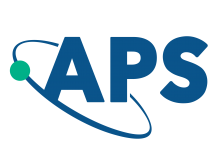
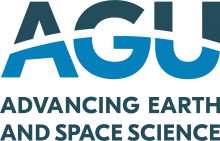
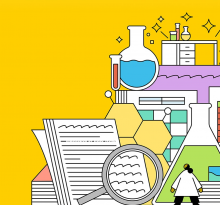 Published in c&en, 2021-07
Published in c&en, 2021-07
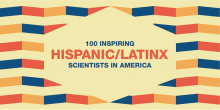 Published in CellPress, 2020-09
Published in CellPress, 2020-09
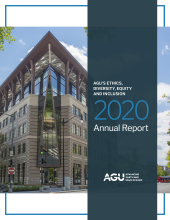 Published in AGU Annual Ethics Report 2020, 2021-04
Published in AGU Annual Ethics Report 2020, 2021-04
 Published in Nature, 2021-04
Published in Nature, 2021-04
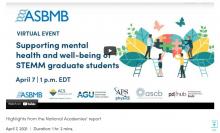 Published in American Society for Biochemistry and Molecular Biology, 2021-04
Published in American Society for Biochemistry and Molecular Biology, 2021-04

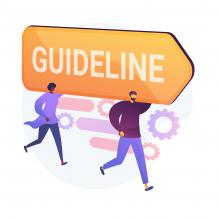
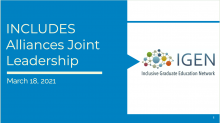
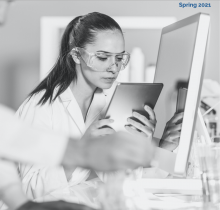
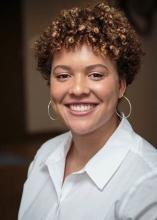 Published in inChemistry, 2020-11
Published in inChemistry, 2020-11
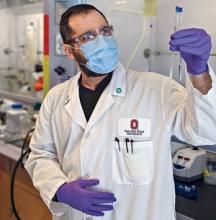 Published in c&en, 2021-03
Published in c&en, 2021-03
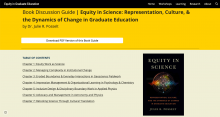
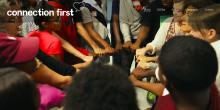

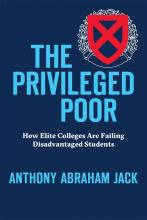 Published in Harvard University Press, 2019-03
Published in Harvard University Press, 2019-03


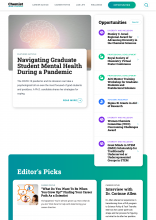 Published in GP Chemist,
Published in GP Chemist,
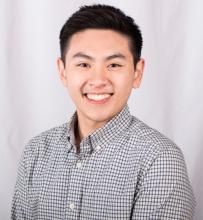 Published in inChemistry, 2020-09
Published in inChemistry, 2020-09
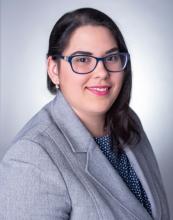 Published in inChemistry, 2021-02
Published in inChemistry, 2021-02

 Published in IGEN Newsletters, 2021-02
Published in IGEN Newsletters, 2021-02
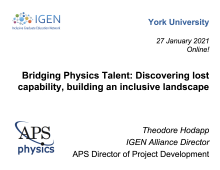 Published in York University Online Presentation, 2021-01
Published in York University Online Presentation, 2021-01
 Published in The Chronicle of Higher Education,
Published in The Chronicle of Higher Education,
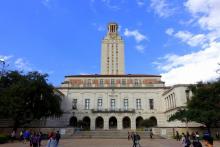 Published in Inside Higher Ed, 2020-12
Published in Inside Higher Ed, 2020-12
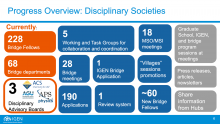
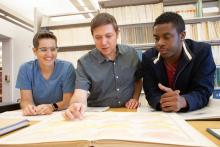 Published in Nature, 2020-07
Published in Nature, 2020-07
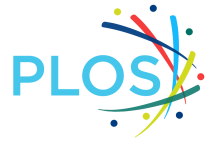 Published in PLOS Biology, 2018-04
Published in PLOS Biology, 2018-04
 Presented at
Presented at 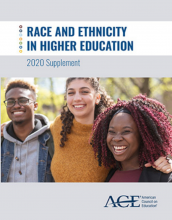
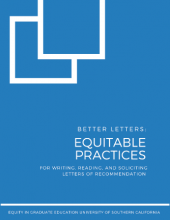 Published in Equity in Graduate Education - University of Southern California, 2020-11
Published in Equity in Graduate Education - University of Southern California, 2020-11
 Published in EOS, 2020-06
Published in EOS, 2020-06
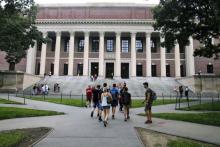 Published in Pullias Voices - Pullias Center for Higher Education, 2020-10
Published in Pullias Voices - Pullias Center for Higher Education, 2020-10

